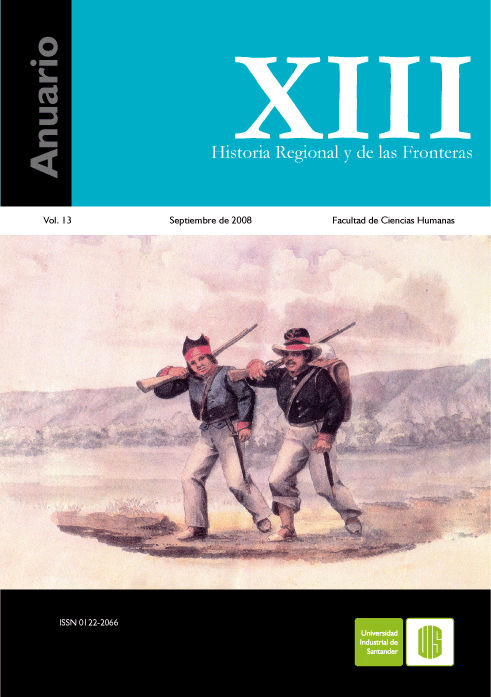La campaña de propaganda de los Estados hispanoamericanos en Europa (1810-1830)
Published 2008-08-12
How to Cite
Abstract
Spanish-American diplomacy is so ancient like the revolution same. It wants to say that it appened exactly in 1810, as the same time las Juntas de Gobierno that proliferated then lengthwise and width of the continent. Nevertheless, the birth of the diplomacy of the revolutionary States of the Spanish America knew two phases: The first agrees with Fernando's VII captivity in Valeçay and it is characterized for an explicable prudence. The second best developed as from 1814 in the context of Napoleón's defeat that a peacetime in Europe established too little favorable to the negotiations of revolutionary Spanish-American agents. The history of the birth of Spanish-American diplomacy can not do without the study of the propaganda that first agents conceived and published in Europe with the aim of making the recognition of his respective republics easy. This article show which ones were the guidelines of that intense campaign and which ones the midways used by American plenipotentiaries to succeed in the war of papers that opposed them to Fernando's ministers and to conservative sectors of capitals of France and England. His objective is to draw the guidelines of the "diplomacy of recognition" by the analysis of stock undertaken by official and officious agents of revolutionary Spanish Americans in London and Paris.
Keywords: Spanish-American diplomacy, diplomacy of recognition, stories of the revolution.
